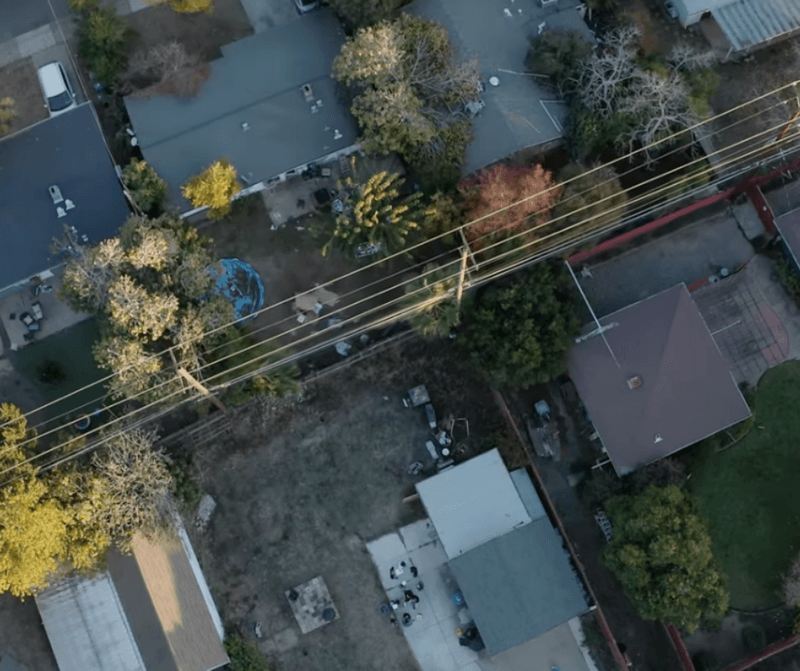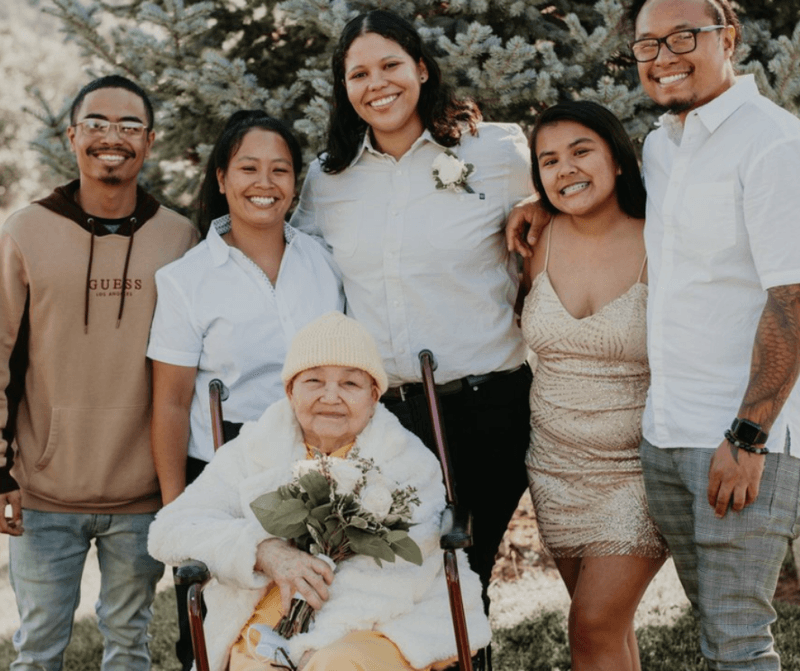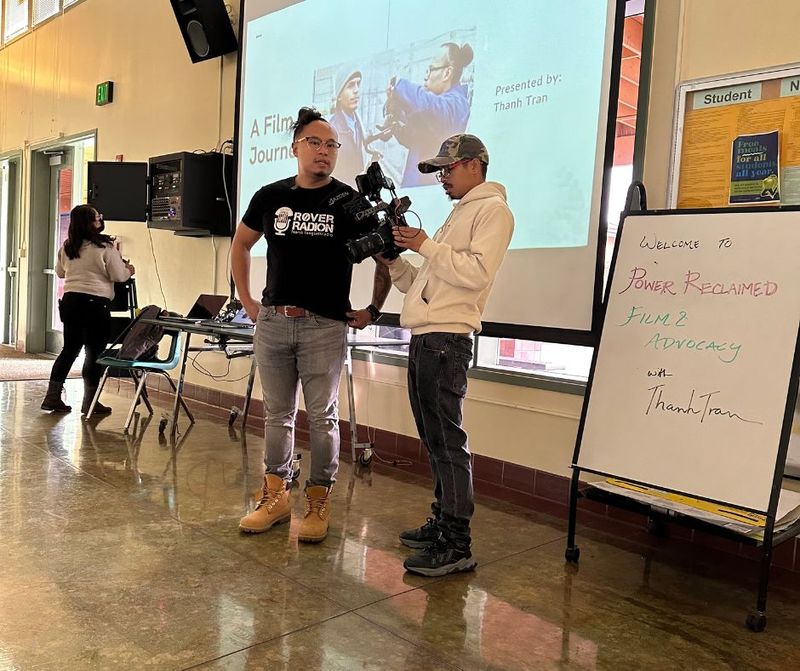
ABOUT

Origin Story
Being a BIPOC, former foster youth, and formerly incarcerated, film has never been accessible to me or my community in South Sacramento. More importantly, film as an organizing, advocacy, and power building tool was not accessible to me and my community. It wasn't until I was incarcerated in San Quentin State Prison that I was able to hold a professional camera in my hands thanks to the program FIRSTWATCH.
After teaching myself film in prison and learning about the power and responsibility inherent with the art of film, I was committed to telling my own story and empowered my family to do the same. November 2021, my family and I started filming what would now become Finding Má, a feature length documentary highlighting my family's journey through immigration, foster care, addiction, and incarceration. With this film Finding Má aims to challenge who gets to tell stories. We challenge who is qualified to tell stories. We challenge how to ethically tell stories. Come grow on this journey with us and experience a documentary people will be talking about for a long time.

Our Values
Our film’s key tenets are guided by Film Maker Adamu Chan. Read more in this blog
- Be Accountable: Filmmakers should be accountable to the participants in their films, and cognizant of the extreme stakes that are present for incarcerated people when they decide to share their stories. Their freedom and safety is at stake, and there should be a commitment to protecting those things.
- Consult with directly impacted people: It is critical to receive input from consultants with lived experience who exist outside of the filmmaker-subject relationship. For film to be useful for social movements that work in resistance to the Prison Industrial Complex, they must be led, or in deep collaboration with, impacted people and political organizers.
- Employ systems-based storytelling: What is often missing in character-driven storytelling is a critical analysis of the structures that shape a person’s life and decisions — in essence, seeing the trees but not the forest.
4. Be transparent in your relationships: Practice honesty with your protagonists, supporters and funders and be clear about your intentions for making the film — there is a higher standard for transparency when it comes to the people participating in your film, especially if they are incarcerated. Be transparent about your decision-making and what guides it (do your participants have any say or is it all yours?). Be transparent about who your main audience is and what kind of impact the film may have on a person's life.
5. Respect the dignity and agency of the people in your film: Build informed consent in your interactions with participants, giving people agency to represent their story in a way that honors them.
6. Understand that your audience also includes impacted communities: with roughly 2 million people currently in carceral facilities across the US, plus their loved ones and communities, an outsized population has a stake in these stories and should be accounted for. Consider the ways that your work may be read, interpreted and experienced by the people who have intimate knowledge of the story. Be clear about who your intended audience is, and what information you can add to their already established knowledge. Additionally, be responsible about the ways that your film could trigger or traumatize those audience members who have more experience with the film’s content.
7. Acknowledge and share power: You hold the power to shape and interpret stories — your own and those of others. A values-based filmmaking practice requires an acknowledgement and deep examination of your lens, preconceptions, and the power you hold as a filmmaker. Consider what you have to gain and lose as a filmmaker, and whether or not that is out of balance with your participants, and work to close those gaps. Are you the best person to tell this story/make this film?
Finding Má embodies empathy, compassion, and the transformative power of family bonds. It highlights the value of resilience and hope, showcasing our family’s pursuit of healing as a testament to the human spirit's ability to overcome adversity. By shedding light on the challenges faced by our family - addiction, houselessness, incarceration, and foster care - our documentary strives to spark dialogue, confront biases, and foster a more inclusive and compassionate society that recognizes the worth and potential in every individual, regardless of their circumstances.

Director's Statement
When I was a foster youth I could’ve never imagined I would one day be a filmmaker. I never thought I would ever escape the grief, poverty, and death that surrounded my every waking moment. To be alive today and sharing my family’s story is truly a miracle. The platform and privilege that filmmaking has given me is one that I take seriously. I hope to be one of many more former foster youth and formerly incarcerated filmmakers. May my work blaze a path that empowers others.
With much love,
Thanh